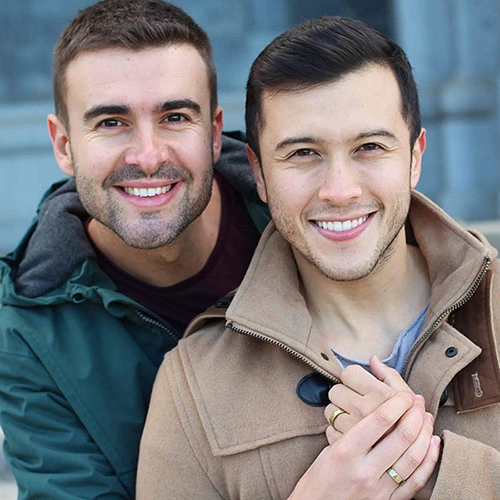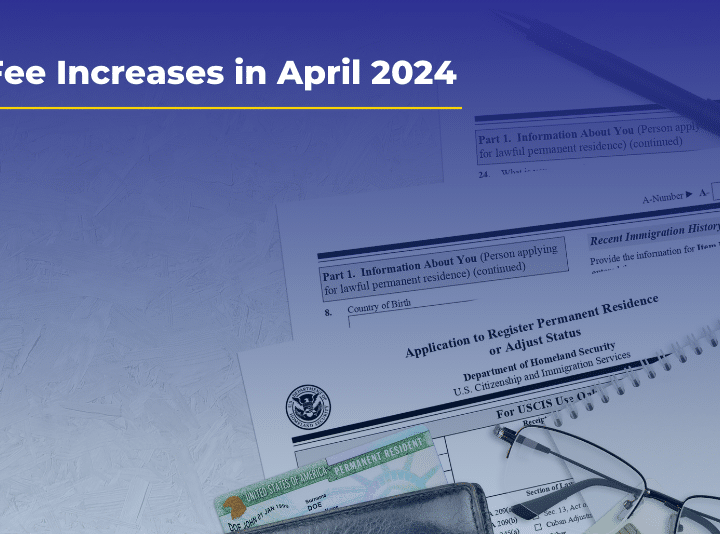Main Content
Get the Best Immigration Lawyer Los Angeles Has to Offer.
Partner with a legal team with a proven track record of 35,000 cases approved and 80 years of combined experience
- 99.9% approval rate
- 5-star rating on Google
- 24-hour response or less
Successes & Reviews
Linda Lee and her team were incredibly helpful, responsive and transparent every step of the way. From our first initial call to receiving approval of benefits, they were great. They left no stone unturned while collecting details for our case ensuring we had no issues further along the process. If you’re looking for an efficient and friendly team to help you through your green card application process, my wife and I would highly recommend them. Thank you Linda & co!

Joe C.
May 11th, 2023.I am so grateful with Linda for her support, knowledge, professionalism and emphaty. She and her team Winston, Arturo and Juan helped me in all my process to get a TN visa, they guided me in a very kind and smart way. The communication was really good and they answer e mails immediately, which was something very important because I didn’t have a lot of time to do this process. I highly recommend her services, as client I was looking for someone honest, committed and acting ethically and I am happy I have found them. Thank you guys for helping me to make a dream come true!

Gabriela Peña
January 4th, 2023.Immigration Law Office of Los Angeles got me my Green Card this fall. I had hired attorney previously to make this happen but with no results. After ILOLA started the process, things started moving forward. Every step was well planned and I was informed constantly how things were advancing. I am very happy customer. The process costed less than I was quoted by many other Law Offices. This was worth every penny and every second. If you really want to help yourself, please talk to these great people.

Jay Tee
December 15th, 2022.Thank you to Linda, Juan, Arturo, Angelique, and Winston! We started our green card journey with a different attorney. After working for 1.5 years with this initial attorney we still hadn’t made any progress in establishing citizenship. 6.5 months after starting work with Linda’s team my husband has his green card. They were amazing every step of the way. We strongly recommend this team to anyone needing help with immigration issues.

Melissa Roth
April 29, 2022.I can only recommend the immigration services offered by ILOLA. If you are looking for an attorney office that cares, look no further! My wife and I started the GC application process in August 2022, and we received our GC in March 2023 (8 months). The whole team was a great support during the whole process, always reachable, and answering calls and emails within minutes! Thanks again to Linda, Winston, Arturo, and Juan for making this happen.

Luc C.
April 3, 2023.Immigration Law Office of Los Angeles I’d definitely recommend them for everyone who needs legal help with immigration papers for families. They are very professional, prompt with responses, I really enjoyed their help for renewing my moms green card. It came very fast because they helped me submit all the paper’s correctly. Thanks for everyone in the office who answered my every questions, big thanks to Juan Diaz, Arturo Rojas, and Winston Lee! You are guys the best. So grateful.

Sarah D.
February 2nd, 2023.Working with ILOLA for our family based green card was the greatest choice and experience. They guided us through all the process, they have been professional and explained every passage of the process, which definitely helped us feel reassured. They answered all our questions and have been constantly in touch with us. We are very glad we chose them and suggest them very much!

Ilenia F.
February 20th, 2023.Practice Areas
How can we help you?

Investment Visas
To qualify for an E-1 classification, one must be a national of a country with which the United States has a treaty of commerce and navigation ...

Employment Visas
The attorneys at ILOLA have successfully processed over 12,000 cases for their corporate clients. The clients range from multinational conglomerate companies to small start-up companies in diverse ...

Family Visas
Families should remain united – this sentiment is universal no matter where you are in the world. However, they often become fractured due to extenuating circumstances, such as employment opportunities, education, and so on ...
About Immigration
Law Office of Los Angeles

A 5-Star rated Immigration Law Firm Helping you Achieve the American Dream of Citizenship
The Best Immigration Attorneys in LA. Over 35,000 cases Approved. Whether it’s investment, employment or family based visa, the Immigration Law Office of Los Angeles will advise you as to your best next step. Your American Dream starts now!
If you are an immigrant ready to invest in your future, it is important to find an immigration lawyer who has both skill in immigration law and a genuine caring for their clients. At the Immigration Law Office of Los Angeles, P.C., our award-winning team believes that what we are fighting for is much greater than just your rights. We fight to open up opportunities, bring families together, and provide hope for the future.
Immigration Lawyers
in Los Angeles
Types of Immigration Cases We Handle
Our law firm is dedicated to assisting clients both in the United States and abroad. We represent all types of clients in immigration matters before the United States Citizenship and Immigration Services (USCIS), from multinational corporations to entrepreneurs to investors and their families to individuals hoping to bring a loved one to the United States.
As a boutique law firm, we are able to focus exclusively on immigration law. Our attorneys bring over 90 years of combined experience exclusively in the area of immigration law as well as all of our resources and expertise to provide solutions to your immigration needs. Based in Los Angeles, we represent clients in California and throughout the United States and the world on a range of immigration law matters, including:
- Employment visas, such as H-1B visas, O-1 visas, J1 and H-2B visas (nanny visas), EB-1 visas, EB-2 visas, L-1 visas, and H-1B transfers;
- Investment visas, including EB-5 and E-2 visas; and
- Family visas, such as Spouse, Parents, Child and the K-1 fiancée visa.
Each case begins with a consultation with one of our attorneys. During this appointment, we will listen to your story and then offer you legal advice about your immigration options. If you choose to hire our firm, we will get to work right away to put together the strongest petition to submit to USCIS.
The process of immigrating to the United States varies based on the type of visa that you seek. Immigrant visas, as opposed to business or tourist visas, include the following basic steps:
- File an immigrant petition. In some cases, such as a family visa, another person may sponsor you or file it on your behalf.
- Submit all supporting paperwork and fees to USCIS.
- Once your petition has been approved, you may apply for an immigrant visa at the U.S. Consulate in the country where you currently reside.
- Get a medical examination.
- Go to an interview.
- Wait for a decision on your application for a visa.
If your visa is approved, then you will be required to pay a fee. You will be given a sealed packet of documents to give to officials at a U.S. port of entry. If your visa gives you permanent residency, then you will receive your green card in the mail.
Of course, the process is far more complicated than the above steps would indicate. Depending on the type of visa you are seeking, you may need to submit a legal brief that supports your petition and other documentation.
For example, if you would like to immigrate to the United States on an EB-2 visa, for professionals with advanced degrees and persons of exceptional ability, you will need to file a labor certification from the United States Department of Labor or an exemption, known as the National Interest Waiver, in order for your petition to be approved. A seasoned immigration lawyer in Los Angeles can guide you through the process and ensure that all supporting paperwork and documentation is filed appropriately with USCIS.
How a Los Angeles
Immigration Attorney Can Help
Because the immigration application process is so complex and filled with potential pitfalls, it is often a good idea to work with an experienced immigration attorney.
As an initial matter, a Los Angeles immigration lawyer can provide you with strategic advice about your case. Most people are not familiar with the U.S. immigration system. Even if you have friends and family who have successfully secured a visa, they may not know the ins and outs of the process and the most recent changes in immigration law.
An attorney can advise you of all of your options when it comes to immigration. You may even be eligible for a visa that you hadn’t even considered before - like an investor visa that will allow you to come to the United States and bring your family.




What Makes Our Immigration Law Firm Different
The Immigration Law Office of Los Angeles strongly believes that immigrants make our country stronger. We are proud to help our clients achieve their version of the American dream, which starts with a petition for a nonimmigrant or an immigrant visa.

Our legal team has more than 90 years of combined experience representing immigrants as they seek all types of visas. Collectively, we have successfully handled tens of thousands of immigration matters for our clients.
We exclusively focus on immigration law, with experience and broad knowledge in all types of visas, from business and employment visas to investor visas and family-based visas. Our law firm is committed to providing personalized service to each of our clients. We pride ourselves on creating a safe, welcoming environment for each person who walks through our doors. We will communicate openly and honestly with you, giving you a realistic idea of what you can expect from the immigration process.
While we cannot guarantee a specific outcome, what we can promise is that we will put together the strongest possible petition for a nonimmigrant or an immigrant visa for each of our clients. We will handle communications with USCIS on your behalf, and work with you to help you understand your rights and options throughout the process.
Ready to Get Started? Reach Out Today.
If you are considering seeking a nonimmigrant or an immigrant visa, either for yourself or a loved one, it can be hard to know where to start. Our law firm can advise you of your options for seeking an employment, business, investor, or family-based visa. If you choose to hire us, we will work with you to help make your dream a reality.
The Immigration Law Office of Los Angeles focuses its practice on immigration law. We are committed to successfully shepherding each of our clients through the immigration process. To learn more or to schedule a consultation with an immigration lawyer in Los Angeles,
Give us a call at 213-375-4084 or reach out to us via email
Immigration Law FAQs
How to become a citizen? What is the method of applying for a US application?
What are the conditions for US citizenship applications?
The initial prerequisite for all applicants to naturalize as a citizen of the United States is to be a Permanent Resident (i.e. have a Green Card). You’ll need to have been a permanent resident for at least three to five years prior to applying for citizenship, depending on your case.
Additionally, when you file your naturalization application you must be at least 18 years old; be able to speak , read and write basic English; and be a person of good moral character. Many exceptions exist to many of the criteria and it’s important to check with an attorney to see whether you qualify for exemptions from criteria.
What are the conditions for US citizenship applications?
The initial prerequisite for all applicants to naturalize as a citizen of the United States is to be a Permanent Resident (i.e. have a Green Card). You’ll need to have been a permanent resident for at least three to five years prior to applying for citizenship, depending on your case.
Additionally, when you file your naturalization application you must be at least 18 years old; be able to speak , read and write basic English; and be a person of good moral character. Many exceptions exist to many of the criteria and it’s important to check with an attorney to see whether you qualify for exemptions from criteria.
How do I move from Green Card to Citizenship?
As a Green Card holder, before qualifying for citizenship, you would need to have lived permanently in the United States for a period of at least three to five years (depending on the path to becoming a permanent resident).
To gain U.S. citizenship, Green Card holders may need to apply for naturalization through USCIS after the time period has been met. An experienced immigration attorney can assist during this process.
How can I get my parents a Green Card?
Only US Citizens can apply to get your parents a Green Card. Green Card holders are prohibited from petitioning their parents for green cards. You’ll need to be over 21 and a U.S. resident to petition your parents for permanent residence in the United States. Depending on personal and family factors the process of sponsoring your parents to receive Green Cards will vary. An experienced attorney will help insure that you prevent costly mistakes and/or omissions on the application as well as during the process that might jeopardize your parents’ opportunity to earn Green Cards. There are no quota requirements for a Green Card of this kind.
May I receive a Green Card by marriage?
You can gain permanent greencard by marrying a U.S. Citizen. Even after marriage to a U.S. Citizen, a Green Card petition procedure can still be a lengthy, complex undertaking involving extensive documentation and paperwork. You will also get a Green Card by marrying a current Green Card holder.
However, the petition may be put in a restricted category of annual quotas, and it may take several years to obtain the Green Card before you are permitted to enter the United States on an immigrant visa if the visa numbers retrogress as it has in the past. It is important to note that marriage to a U.S. Citizen or holder of a Green Card does not automatically confer Green Card status to you. Talking to an experienced immigration lawyer is a perfect way to discuss all the options to get a Green Card.
Could a Holder of a Green Card sponsor a member of the family?
A holder of a Green Card can both sponsor his / her spouse and any unmarried children. Depending upon visa availability, any family relationship that a Green Card holder is permitted to sponsor, may have to wait several years before being granted entry into the USA. It is necessary to remember that holders of the Green Card are barred from petitioning their parents for green cards. Non-resident family members of Green Card holders are put in a quota-limited group distinct from immediate relative applications for immediate family being petitioned by U.S. Citizens.
An experienced Immigration attorney will help you find legal ways to get your family members into this country as soon as possible.
What is the Green Card process with H1B?
One of the most complicated processes in immigration law is going from an H-1B visa to a Green Card. There are plenty of steps you and your employer need to take to make the move. This is important that you retain legal immigration status during the Green Card application process, which can be lengthy. In some conditions, when your Green Card application is being processed, you may seek an extension of your H-1B status within one year intervals after the initial 6 years have lapsed. H-1B extension processing period typically is around 2 – 12 months but USCIS provides no guarantees of period at all unless the application is filed by premium processing.
Consulting with an experienced attorney to ensure adequate and prompt compliance while staying in line with legal immigration is essential to an obtaining permanent resident status.
What is the I 601 waiver?
An I-601 Request for Waiver of Reasons of Inadmissibility allows a non-citizen alien to immigrate to the United States, change their status to permanent residency or request entry to the United States in a non-immigrant position where certain grounds of inadmissibility, conditions or actions preclude them from being otherwise admissible. The I-601 rule extends to those aliens who, based on certain grounds of inadmissibility, have been found to be ineligible for entry into the United States.
Who is eligible for l1 visa?
To qualify for an L1 visa, the employee, who can include business owners, must have worked outside the US for at least one year out of the last three years for a subsidiary, parent, affiliate or branch office of the US organization. One of the benefits of the L1 visa is there’s no quota.
What is l1a and l1b visa?
An L1A or L1B Visa will be given to international workers eligible for L1 visas. The L1A visa is for executives and administrators. The L1B visa is for specialized-knowledge professionals.
What is eb2 NIW?
EB-2 is a category of immigrant visa preferences for permanent residency dependent on jobs in the United States, established by the 1990 Immigration Act. The category includes “members of professions with or equal to advanced degrees” and “individuals who, because of their exceptional skill in science , arts or company, may gain significantly in the future the national economy, cultural or educational interests or welfare of the United States and whose services are pursued in the fields of science, arts, professions or company. Applicants (except applicants applying for an exemption known as National Interest Waiver) usually need to have an approved labor certification, prior to their employer filing an Immigrant Petition for Alien Worker (Form I-140) with USCIS.
Who qualifies for eb1?
EB1-1 is open to foreign nationals demonstrating outstanding talent in their area, be it science, music, education , business or athletics. Extraordinary talent is usually shown by having “sustained national or international recognition”
What is eb3 visa in USA?
The EB3 Visa is a US Visa / Green Card for “Skilled, Professional, or Other Workers” permanent residency.
What is PERM labor certification?
Certification of the PERM or also known as labor certification. Program Electronic Review Management (PERM) is the method used to gain labor certification and is the first step in securing an employment immigrant visa (Green Card) for certain foreign nationals. It is also recognised as the Certificate for PERM work.
What does it mean to have a green card?
A Green Card (permanent resident) holder is someone who has been granted permission to live and work indefinitely in the United States. As confirmation of that status, the U.S. Citizenship and Immigration Services (USCIS) offers a permanent resident visa, widely known as the “green card,” to a individual.
How long is an O 1 visa good for?
Most other visas have a limited lifespan. The H-1B lets you stay for six years, the L-1 for five to seven years and the J-1 for an average of five years. By comparison, the O-1 provides an initial three-year duration of stay, but allows unlimited extensions. Essentially, as long as you are under O-1 status and meet the conditions for an O-1 extension, you can live and work in the US. However, these extensions are given in increments of one year, and are not guaranteed.
What is an 02 visa?
The category O2 non-immigrant visa exists for aliens who are temporarily seeking to enter the United States and operate by supporting and assisting an exceptional O1 alien ‘s artistic or athletic performance.
Request A Free Consultation
Our team will follow up with you to gather your case details first to determine if our office can help you prior to scheduling a consultation.
Today is the day to reach for your immigration dreams. Our attorneys have 80 years of combined experience and 35,000+ immigration cases approved. The Immigration Law Offices of Los Angeles, P.C. will help you understand your options and advise you as to your best next step.




